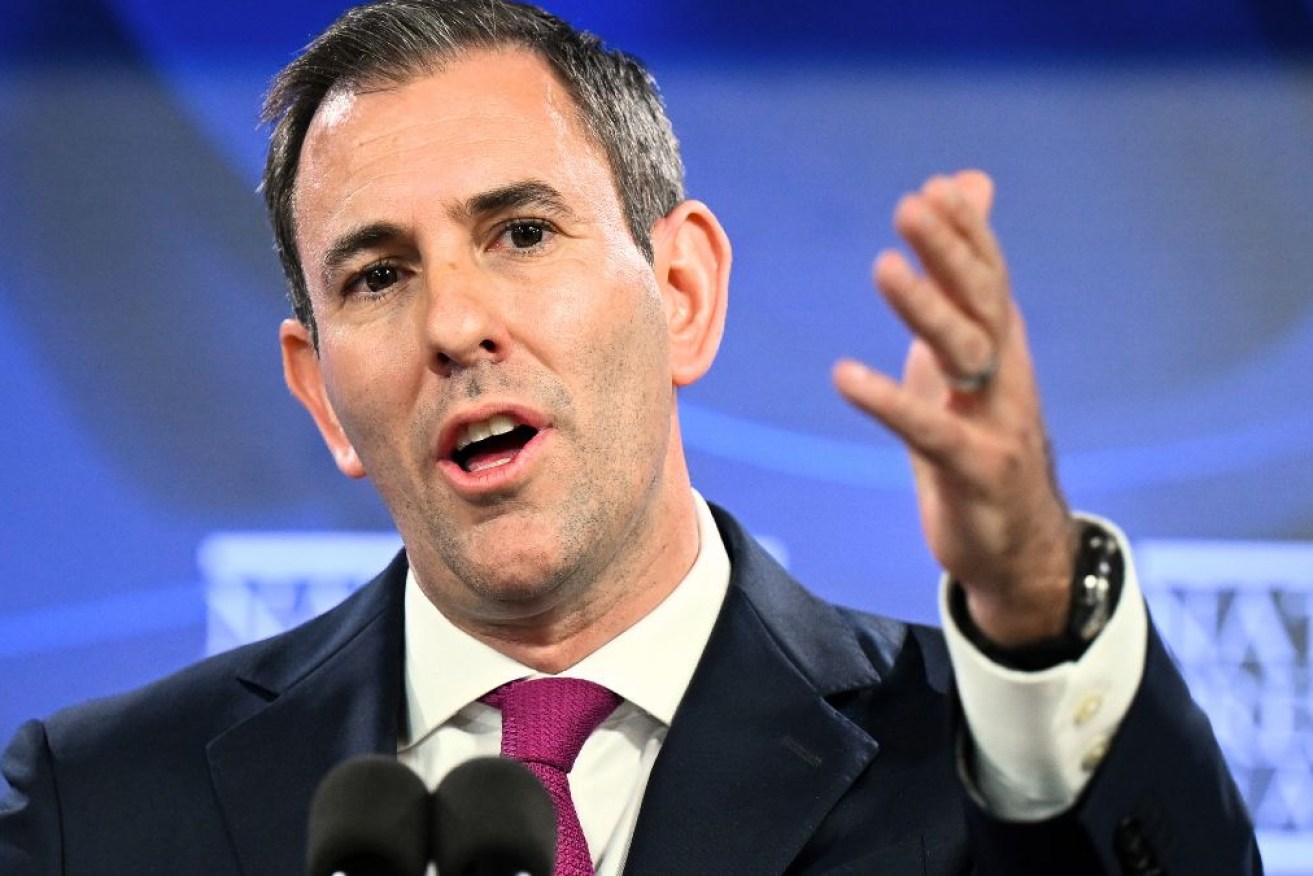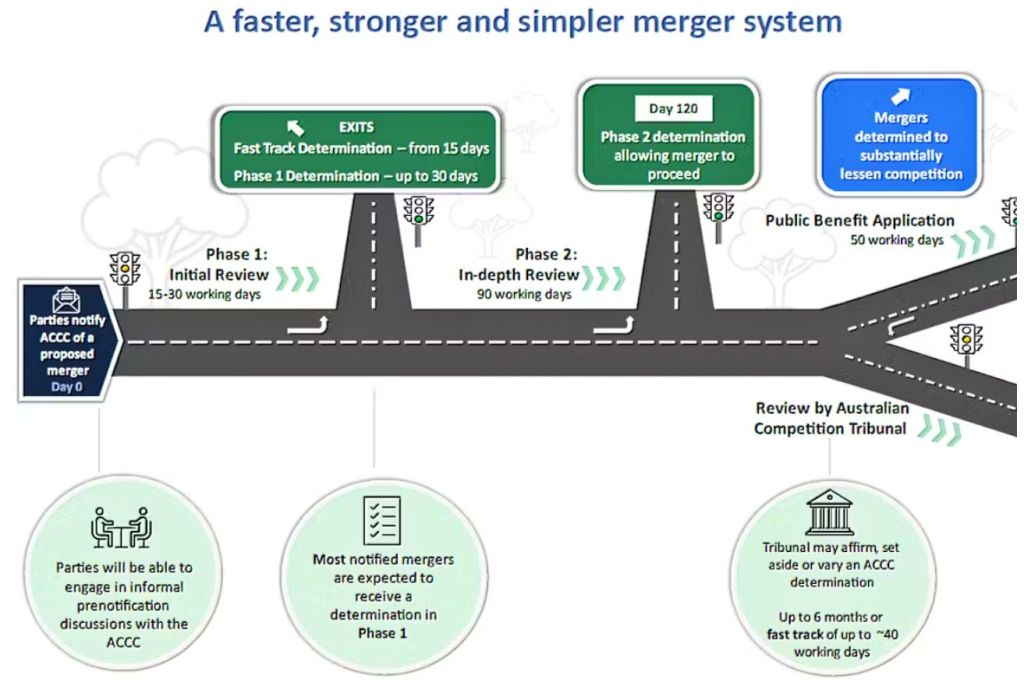‘Infinitely better’: Crackdown targets corporate mergers that raise consumer prices


Treasurer Jim Chalmers is set to unveil a big upgrade to the budget next week. Photo: AAP
The competition watchdog will get new powers to police mergers under a crackdown that’s been backed by a leading expert, amid fears corporate tie-ups are raising consumer prices.
Treasurer Jim Chalmers unveiled the broadest reforms to Australia’s merger laws in half a century on Wednesday, arguing worsening market concentration is hurting the economy.
The overhaul will introduce a mandatory notification regime for mergers and empower the Australian Competition and Consumer Commission (ACCC) to reject repeated acquisitions.
The test for whether a merger is appropriate will also be expanded to prevent mergers which “strengthen or entrench substantial market power”, Chalmers said on Wednesday.
“The ACCC will more efficiently and effectively target mergers that are anti‑competitive while allowing mergers that are pro‑competitive to proceed faster,” Chalmers explained.
“This will bring our merger settings into the 21st century.”
But the government stopped short of fulfilling the ACCC’s entire policy wish list, ultimately rejecting a push to reverse the onus of proof for justifying contested mergers onto firms.
The move was opposed by business groups, despite many experts backing such a change over concerns that it’s too difficult for the ACCC to stop anti-competitive mergers in court.
Nevertheless, the new system will put the ACCC and its economics expertise at the heart of the merger process rather than the courts, which Chalmers said will strengthen oversight.
Former ACCC boss Rod Sims, who also sits on the government’s competition taskforce, applauded the changes, saying they will give regulators the power to protect consumers.
“Our economy has become much too concentrated over the past 20 years,” Sims explained,
“Buyers can charge more than they otherwise would and we have to stop that continuing.”
Mergers crackdown unpacked
The cornerstone of Chalmers’ merger reform is a move to a mandatory notification scheme that will put the ACCC in the driver’s seat as to whether a corporate tie up should go ahead.
That’s different to the current system where notifications are only voluntary and the ACCC only has an opportunity to speak up about dangers after the process has already begun.
Sims said the existing system led to some mergers during his time as ACCC chair which resulted in higher prices – something the new system will be better at guarding against because it will rely less on legal tests and more on the regulator’s economic analysis.
“Deciding on economic grounds whether the merger should proceed or not is an infinitely better system,” Sims explained.
The ACCC will also consider the value of mergers companies have undertaken over the past three years in an effort to prevent “serial acquisitions” that entrench monopolies over time.
One wrinkle in the plan is that the threshold above which mergers will require notification isn’t yet decided, though the Treasurer will have powers to designate high risk industries.
“These thresholds will be based on international practice and set through consultation,” Chalmers said on Wednesday.
The new process will also be faster, with mergers set to be approved within 30 working days from January 1, 2026 unless the watchdog has concerns about a particular merger proposal.
In those cases, an in-depth review will take place – which could take up to 90 days – after which the ACCC will announce publicly whether a merger would substantially lessen competition.

Source: Treasury
Businesses can then apply to review any ACCC decisions before a Competition Tribunal that Chalmers says will include a federal court judge, an economist and a “business leader”.
The public will be kept informed through a register of all mergers and acquisitions notified to the ACCC as well in an effort to boost transparency and accountability.
Companies will also be charged between $50,000 and $100,000 to cover taxpayer costs for running the ruler over potential mergers, with smaller businesses set to be exempted.
Supportive reactions
The competition watchdog itself has reacted positively to the reforms, with chair Gina Cass-Gottlieb saying on Wednesday that the ultimate beneficiaries will be Australian consumers.
“Higher prices, less choice and less innovation can result from weakened competition. Stronger merger laws are critical to ensure anti-competitive mergers do not proceed,” she said.
“These proposed changes are significant and will reinforce public confidence in Australia’s competition laws.”
The Business Council also supported the changes, calling them “balanced” while flagging the need for further consultation on some details, like the threshold for mandatory notification.
“The government has accepted important points advocated by the BCA, including there be no change to the onus in the merger test, clear decision-making timelines and streamlining FIRB competition assessments,” BCA boss Bran Blanck said.
Sims said consultation about which mergers are captured by the new mandatory notification scheme will be key, cautioning the government against setting them too high.
Chalmers said on Wednesday that he expects the ACCC will assess around the same number of mergers (about 330 a year) after the changes, but Sims said the government must accept that there will be a need for more analysis under the new mandatory notifications scheme.








